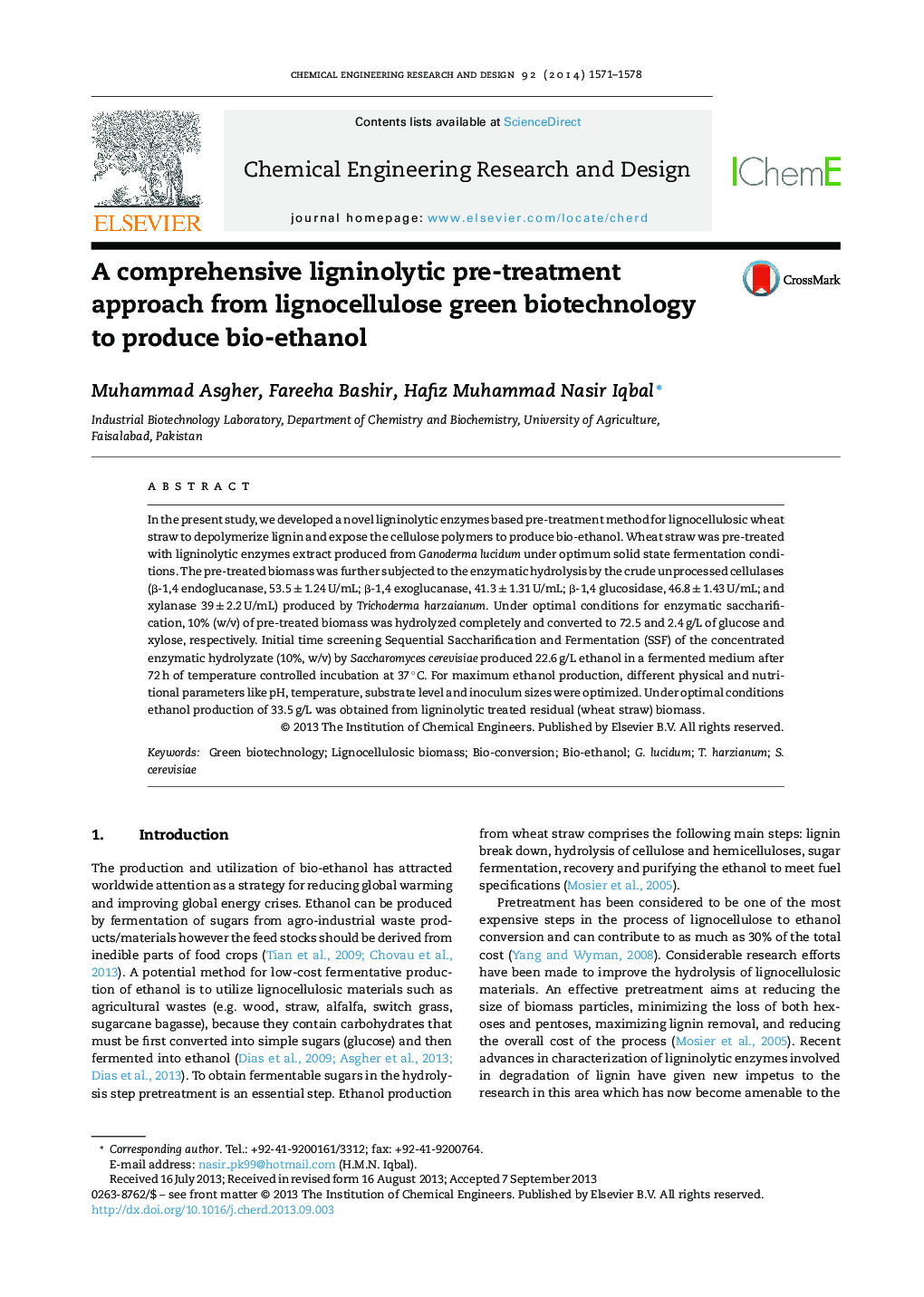| Article ID | Journal | Published Year | Pages | File Type |
|---|---|---|---|---|
| 620679 | Chemical Engineering Research and Design | 2014 | 8 Pages |
•Agricultural waste (wheat straw) is used as fermentation feed for bio-ethanol production.•Ligninolytic pre-treatment is a promising approach.•Economic and environmental net benefits are positive.•Ligninolytic enzymes showed commendable pretreatment performance.•An eco-friendly approach to carry out waste biomass.
In the present study, we developed a novel ligninolytic enzymes based pre-treatment method for lignocellulosic wheat straw to depolymerize lignin and expose the cellulose polymers to produce bio-ethanol. Wheat straw was pre-treated with ligninolytic enzymes extract produced from Ganoderma lucidum under optimum solid state fermentation conditions. The pre-treated biomass was further subjected to the enzymatic hydrolysis by the crude unprocessed cellulases (β-1,4 endoglucanase, 53.5 ± 1.24 U/mL; β-1,4 exoglucanase, 41.3 ± 1.31 U/mL; β-1,4 glucosidase, 46.8 ± 1.43 U/mL; and xylanase 39 ± 2.2 U/mL) produced by Trichoderma harzaianum. Under optimal conditions for enzymatic saccharification, 10% (w/v) of pre-treated biomass was hydrolyzed completely and converted to 72.5 and 2.4 g/L of glucose and xylose, respectively. Initial time screening Sequential Saccharification and Fermentation (SSF) of the concentrated enzymatic hydrolyzate (10%, w/v) by Saccharomyces cerevisiae produced 22.6 g/L ethanol in a fermented medium after 72 h of temperature controlled incubation at 37 °C. For maximum ethanol production, different physical and nutritional parameters like pH, temperature, substrate level and inoculum sizes were optimized. Under optimal conditions ethanol production of 33.5 g/L was obtained from ligninolytic treated residual (wheat straw) biomass.
